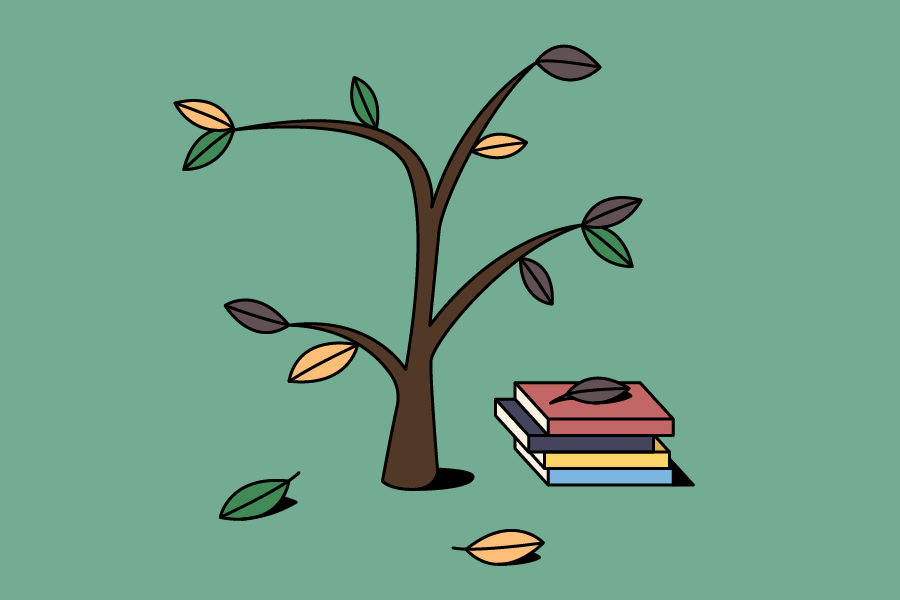Sign up to stay in the loop on new styles and sales!
Sign up to stay in the loop on new styles and sales!
Standing Up Against Revenge Porn with Activist Lawyer Carrie Goldberg
thinx archive
·5 min read

by Mia Abrahams | 08/31/2017
As a teenager in the late-aughts, I have distinct memories of my teacher cautioning us during one of our (to my high school’s credit, reasonably comprehensive) sex-ed classes: “Don’t send anything to anyone you wouldn’t want your parents to see.” This was at the dawn of camera phones, when grainy videos of sexual encounters were just beginning to find their way to MySpace pages and circulate through schoolyards.
And here we are in 2017, where if you’re a person on the internet, you’ve come across the not-even-so-recent trend of “revenge porn.” What seems like every few months, some celebrity’s phone is hacked and their private photos revealed — from Jennifer Lawrence to Kirsten Dunst. Most recently, we saw a break-up between Rob Kardashian and Blac Chyna turn ugly when he shared explicit images and videos of her on his Instagram. But it’s not just celebrities who are dealing with this invasive and destructive act.
A 19-year-old FIT student discovered her possessive ex-boyfriend had posted nude selfies she’d sent him to PornHub, with identifying details including her name, address, and bra size. A New York real estate agent breaks up with an abusive ex, who then places ads for her on escort sites and Craigslist, with her full name and personal details — including pictures of her face along random images of vaginas.
What could these women do? How do you stop images from going viral, and get content taken down from the black hole that is the internet? And what recourse is there for victims of revenge porn against their attackers?
First, let’s back up a little. As salacious as “revenge porn” sounds on a magazine cover, what does it actually mean in a legal context? Well, firstly, in the legal world it’s referred to as “nonconsensual pornography,” and is defined as the distribution of sexually graphic images of individuals without their consent. This includes images originally obtained without consent (e.g. by using hidden cameras, hacking phones, or recording sexual assaults) as well as images consensually obtained in the context of an intimate relationship (e.g. selfies or videos you might send your significant other).
Currently, 38 states (and Washington, DC) have nonconsensual porn laws that make sharing images like these a crime. New York does not, although there is a bill pending in legislation. But the reality of the crime and its prosecution is a whole lot more complicated.
Like sexual assault and domestic violence, nonconsensual porn brings with it a whole lot of baggage — victim-blaming, shame, and a system that can be slow to change.
To get the low-down, I spoke with leading revenge porn activist, lawyer, (and complete and total badass) Carrie Goldberg. She was motivated to found her firm, C. A. Goldberg, which focuses on internet privacy and abuse, domestic violence, and sexual consent, after being harassed by a vengeful ex of her own.
I asked Carrie how we, as women living in an online world where our sexuality can also be a vulnerability, can be safe on the internet? But, as Carrie says, maybe I need to be thinking about the issue in a different way: “All people need to recognize nonconsensual porn as a moral transgression — and seriously assholesish thing to do to another person. My message is not just to women about how to be safe; my message is also about how not be a complete asshole and ruin someone’s life.”
Of course, Carrie is right. Like the advice from my teacher, and the chorus of voices after a celeb phone hacking yelling, “Why send nude selfies if you don’t want people to see them?” — these kinds of questions wrongly shift the burden and blame onto the victim. It’s why, in the aftermath of a sexual assault, we should never ask questions like, “Why wasn’t she wearing more clothing?” It should be, “why did he feel he had the right to assault her?” Of course, the burden and blame should *never* be on the victim.
As Carrie says: “We don’t have a choice about whether or not to be on the internet, and on social media. If we want to be competitive or informed people in today's world, it’s hard not to have a presence online as much as we do offline. Social media allows and encourages us to let anonymous strangers into our lives. And, any single one of those people has the potential to seriously destroy another person’s life.”
But, the shame women can feel in these situations is real. Even if you know you did nothing wrong, photos of you at your most vulnerable, on the internet, distributed without your consent, can make you feel powerless and ashamed. I asked Carrie how she helps her clients work through the feelings of shame they might have when they fall victim to a revenge porn attack.
“I normalize it. There is nothing perverted or unusual about sharing sexually graphic images. When somebody is under attack, it’s rarely just one picture on a revenge porn site — it’s in the context of a much greater scorched earth attack on them from someone who wants to see their complete downfall.”
“When you’re under attack you don't have the clearest perspective, so it’s important to me, who has a perspective on these things, to run through the worst case scenario... So for example, okay, you’re worried about work finding out, let’s go to your work and tell them not to open an email from this crazy person.
“It helps a lot to,” here Carrie pauses, “I’m looking for the right word,” she says, and then continues, “castrate the offender” — sounds like the right word to me! — “by removing any leverage they stupidly think they might have.”
Luckily, the hard work of activists like Carrie is paying off, and the legal landscape is shifting to better recognize the seriousness and destructiveness of a crime like revenge porn. “Over the last three years we’ve seen a groundbreaking response to criminalizing revenge porn, from getting social media sites and search engines to ban revenge porn on their platforms, to suppressing it from people's search engine results," Carrie told me. "The media is more willing to cover stories about the crimes, and incidents where celebrities and even non-celebrities are the victims.”
But, of course, there is still more to be done. I asked Carrie what she would like to see in the future to better protect and serve to victims of revenge porn. “There needs to be a federal law. We need all 50 of our states to have nonconsenual porn laws, and law enforcement needs to be educated on how to enforce, collect, and synthesize evidence, and we need our judges to be treating these as serious crimes.”
In a great profile on Carrie and her work in T__he New Yorker (worth a read, if you want to bookmark preemptively for your slow pre-Labor Day Friday tomorrow) — she mentions a judge’s sentencing remarks in a revenge porn case, in which he addressed the offender as “the father of a daughter.” In the piece, Carrie says, “I wish it wasn’t always ‘As the father of a daughter’ or ‘As the husband of a wife.’ I wish it were ‘This kind of assault on someone’s dignity bothers me as a human being with a soul and a conscience.’”
So how do we reframe this dialogue, I ask her? “The best way to reframe it is through activism. To be passing laws for sexual privacy, and work towards enforcing them... if everyone accepts that this is a crime, that will reframe the dialogue.”
“Nonconsenual porn is a form of domestic violence, it’s not an online crime. I don’t believe in a distinction between online and offline crimes, because there’s no distinction between online and offline life, period.”
There are tactical things you can do, of course, to limit your risk, including limiting your geotagging, going private on your personal accounts, and not accepting friend requests from people you don’t know. If someone is harassing you online, don’t delete anything and, Carrie reiterates, take screenshots of everything (because you’re going to need it as evidence), and definitely call a lawyer.
“Anyone who is a victim of a crazy person, online or offline, needs to get resources,” Carrie reminds us.
Ultimately, just because something goes up on the internet, doesn’t mean it is lost forever in the digital jungle (although it can feel that way). Carrie and her firm have helped remove 17,000 sexually graphic images from the internet, and she emphasizes that there *is* action victims can take against their perpetrators, and to get content taken down. As Carrie says: “What goes up, must come down.”
There are a bunch of great resources you can check out on C.A. Goldberg's website, including how to report revenge porn on social media, more info on states with revenge porn laws, and even where to start if you’re feeling overwhelmed and confused.
If you think you might be a victim of nonconsenual porn, the Cyber Civil Rights initiative also has a 24-hour Crisis Helpline at 844-878-2274. (US only)
by Mia Abrahams


